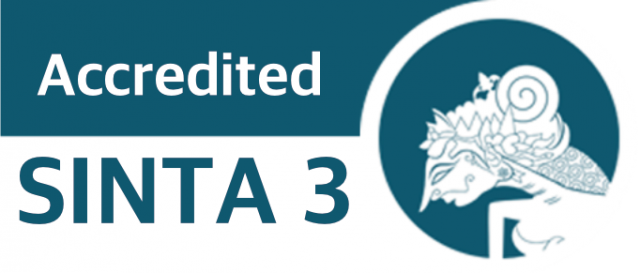Si Rukat Nakan dalam Masyarakat Karo
DOI:
https://doi.org/10.24114/antro.v6i2.18460Keywords:
Si rukat nakan, Karo, culture, idiom, men and woman.Abstract
This article aims to describe the relations of equality and respect for men and women in the Karo cultural frame. The relationship between the two, where adat (culture) is the main reference often has bad-faced implications for the Karo patriarchy. Patriarch Karo is often claimed not to have a space of equality and respect for women. The problem will be focused on the use of idioms attached to Karo women. One idiom that is very attached to Karo women is rukat nakan. Idiom the rukat nakan describes the domestic duties of women, namely arranging accommodation and household logistics. With regard to the relationship between men and women, feminists claim the rukat nakan idiom is a form of condescension toward women, even an attempt to domesticate Karo patriarchal role of women. On the other hand, this idiom is also often referred to to validate the wife's subordination to her husband. The results of the research through interviews, literary research and analysis of Karo song poems, the idioms of rukat nakan are an illustration of the appreciation of the domestic role of women. Si rukat nakan is a domestic assignment which describes a very private relationship between husband and wife. The term œsi rukat nakan is not to denigrate or domesticate women, but it shows respect for women's roles.References
Barus, D.A (2017). Tata Gereja, Ekklesiologi, Penggembalan, dan Budaya: Sebuah Studi Analitis Konstruktif Penataan Tata Gereja GBKP 2015-2025 Mengenai Ekklesiologi dan Pengembalaan. Master Thesis: STT Jakarta.
Colia, R.S (2018). Menggapai Cita-cita: Tinjauan Kritis Historis Karo Kristen Menjadi Gereja Batak Karo Protestan. Jakarta: BPK Gunung Mulia.
Hanani, S. dan Hasan, A.A.G., (2014). Perlawanan Perempuan di Pengungsian: Studi Keberadaan Perempuan di Pengungsian Gunung Sinabung Kabupaten Karo, Sumatera Utara. Kafa™ah: Jurnal Ilmiah Kajian Gender, 4 (2), 141-156.
Koentjaraningrat. (2002). Pengantar Ilmu Antropologi. Jakarta: Rineka Cipta
Kuntjara, E. (2012). Gender, Bahasa dan Kekuasaan. Jakarta: BPK Gunung Mulia
Moderamen, GBKP. (2015). Pokok-pokok Pengakuan Iman GBKP. Kabanjahe: Abdi Karya.
Moleong, L.J. (2007). Metodologi Penelitian Kualitatif. Bandung: Pt Remaja Rosdakarya Offset.
Peursen, C.A. (1976). Strategi Kebudayaan. Yogyakarta: Kanisius.
Purba, J. (2005). Ketimpangan Gender dan Bertahannya Konstruksi Patriarkhi dalam Masyarakat Karo, Jurnal Antropologi Sosial Budaya ETNOVISI, 1 (1), 15-20.
Rae, S. (1994). Breath Becomes the Wind: Old and New in Karo Religion. New Zealand: University of Ottago Press.
Rosnidar, A.Z. (2016). The Shift of Karo Adat Inheritance Law on Daughter and Widow™s Portion, Jurnal Dinamika Hukum, 16 (3), 235-242.
Singarimbun, M. (1975). Kinship, Descent, and Alliance among the Karo Batak. Berkeley: University of California Press.
Sinulingga, S. (2017). Feminisme: Apakah Sebuah Dilema Bagi Perempuan. Dalam Perempuan Kristiani Indonesia Berteologi Feminis dalam Konteks. Asnath Natar (ed). Jakarta: BPK Gunung Mulia.
Sinuraya, F.A. (2009). Perempuan Pendeta GBKP: Suatu Tinjauan Terhadap Pemahaman Diri Perempuan GBKP dalam Hubungannya dengan Kebudayaan Karo Berdasarkan Perspektif Feminis. Sarjana Sikripsi: STT Jakarta.
Steedly, M.M. (1993). Hanging Without Rope: Narrative Experience in Colonial and Postcolonial Karoland. USA: Princeton Legacy Library.
Suardiman, S.P. (2001). Perempuan: Kepala Keluarga. Yogyakarta: Penerbit Jendela.
Tata Gereja GBKP 2005-2015. (2005). Kabanjahe: Abdi Karya.
Tarigan, H. (2009). Upacara œNengget di Kalangan Suku Karo (Studi tentang Perspektif Gender di Desa Kuta Rayat, di Kecamatan Naman Teran, Kabupaten Karo). Sikripsi: USU.
Downloads
Published
How to Cite
Issue
Section
License
Copyright (c) 2021 Anthropos: Jurnal Antropologi Sosial dan Budaya (Journal of Social and Cultural Anthropology)

This work is licensed under a Creative Commons Attribution 4.0 International License.

This work is licensed under a Creative Commons Attribution 4.0 International License
Authors who publish with this journal agree to the following terms:
- Authors retain copyright and grant the journal right of first publication with the work simultaneously licensed under Creative Commons Attribution 4.0 International License that allows others to share the work with an acknowledgement of the work's authorship and initial publication in this journal.
- Authors are able to enter into separate, additional contractual arrangements for the non-exclusive distribution of the journal's published version of the work (e.g., post it to an institutional repository or publish it in a book), with an acknowledgement of its initial publication in this journal.Penulis.
- Authors are permitted and encouraged to post their work online (e.g., in institutional repositories or on their website) prior to and during the submission process, as it can lead to productive exchanges, as well as earlier and greater citation of published work (Refer to The Effect of Open Access).


